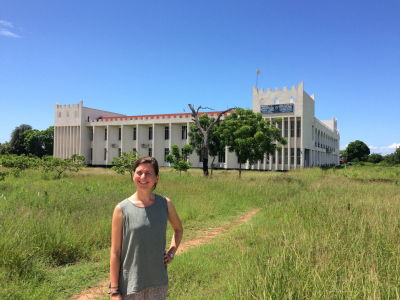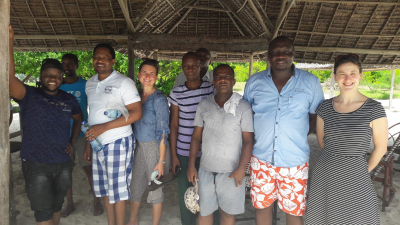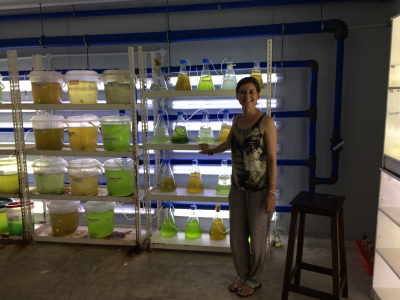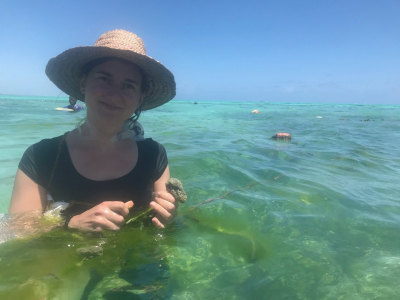Paula Senff
Report of GLOMAR PhD student Paula Senff about her research placement on the island of Zanzibar in Tanzania at the University of Dar Es Salaam, Zanzibar Seaweed Cluster Initiative (ZaSCl), Institute of Marine Sciences (IMS) from 30 October to 18 December 2019
From October 30th to December 18th I had the opportunity to complete a research stay on the island of Zanzibar in Tanzania, funded by the GLOMAR graduate school of the Center for Marine Environmental Sciences (MARUM) at the University of Bremen. As my PhD is coming to an end in 2020, my goal was to learn about local aquaculture developments, meet with potential research partners and develop project ideas. With its diverse marine ecosystems and various types of resource exploitation, Zanzibar has been an established research location in the area of tropical marine ecology. For me, the island is of great interest because efforts have been made in recent years to increase aquaculture production for food and export. The aim is to reduce dependence on natural stocks of fish and invertebrates and provide alternative livelihoods for local communities. As my PhD on the topic of bioremediation in aquaculture is drawing to an end in 2020, I wanted to use this opportunity to network and develop plans for future research projects.
My time on Zanzibar was filled with productive meetings with different researchers and organizations. I was able to visit the brand new building of the Institute of Marine Sciences (IMS) of the University of Dar es Salaam, and was also able to meet with researchers who were formally at the IMS but have since moved on to work for the fisheries department or the newly established Zanzibar Seaweed Cluster, both interesting potential project partners. I also learnt about recent renewed efforts to establish bivalve farming on the island. I met with several local and international researchers who are involved in setting up a clam nursery, learnt about their aquaculture as well as what kind of research projects are relevant to support this sector in the future.
A large development has been the construction of a hatchery facility run by international organizations and the State University of Zanzibar. I visited this facility and learnt about the production processes of milkfish, mud crab and sea cucumbers. This was especially interesting for me as my work in Bremen requires keeping species in aquaria and I was able to learn more about their maintenance and health requirements. A student of the Master’s program in International Studies in Tropical Aquatic Ecology is currently hosted by the hatchery. As his research is related to the subject of my PhD, I was able to provide feed-back and assist him in starting his experiment.
My research stay was especially well timed as it correlated with the workshop of the ZMT-DAAD alumni in the East Africa Region, which was hosted in Dar es Salaam, Tanzania. I was able to attend the workshop, present on the aquaculture sector on Zanzibar, and network with my fellow participants. The workshop was a three-day event full of brainstorming activities for future collaborations and many participants were interested in research related to my work. As a result, we are now writing several funding applications for international projects in the East Africa region.






